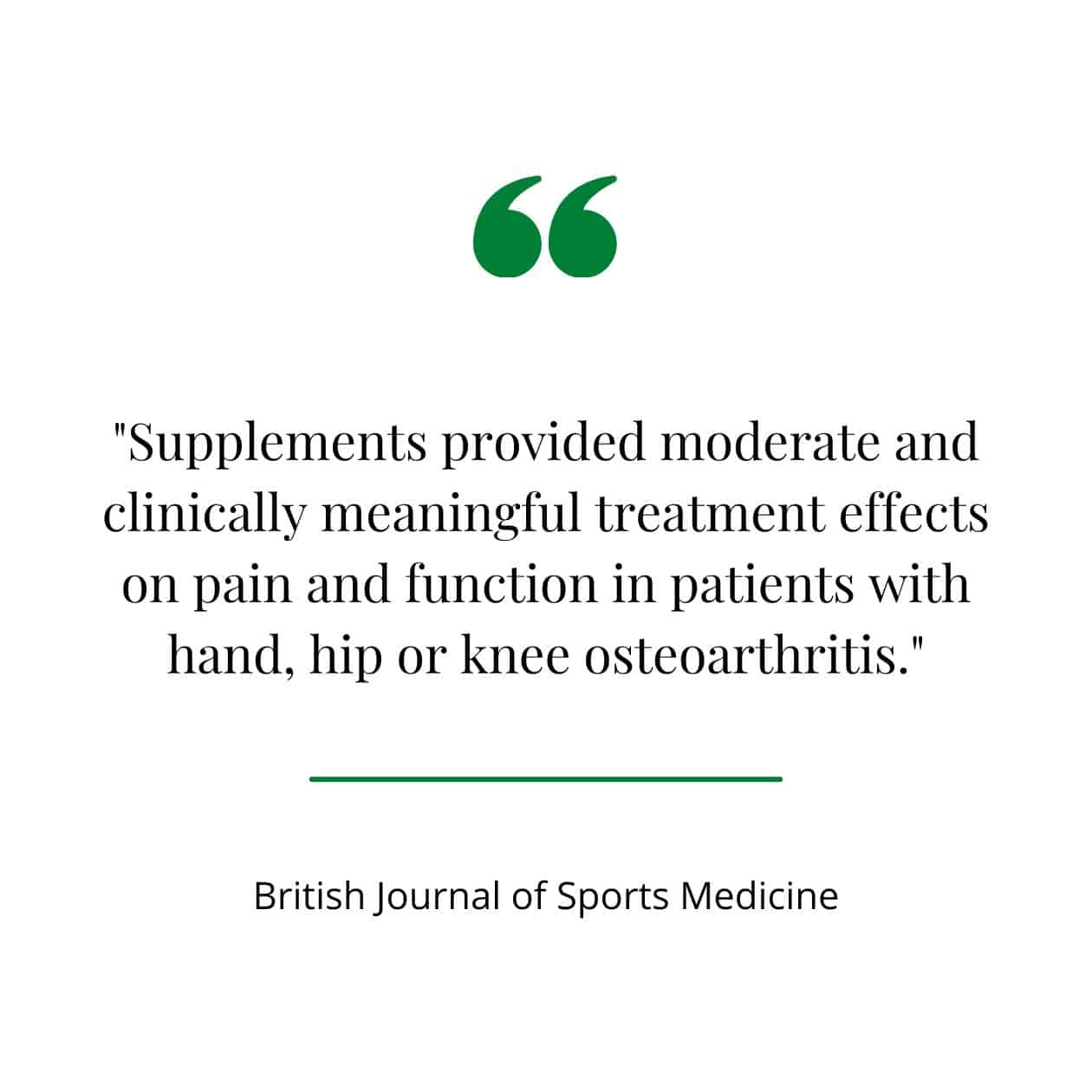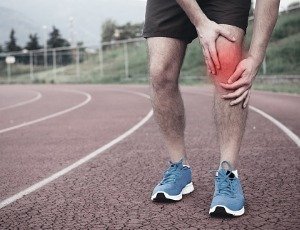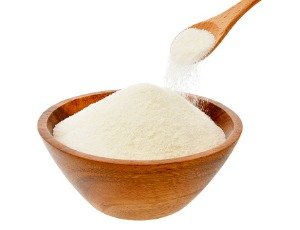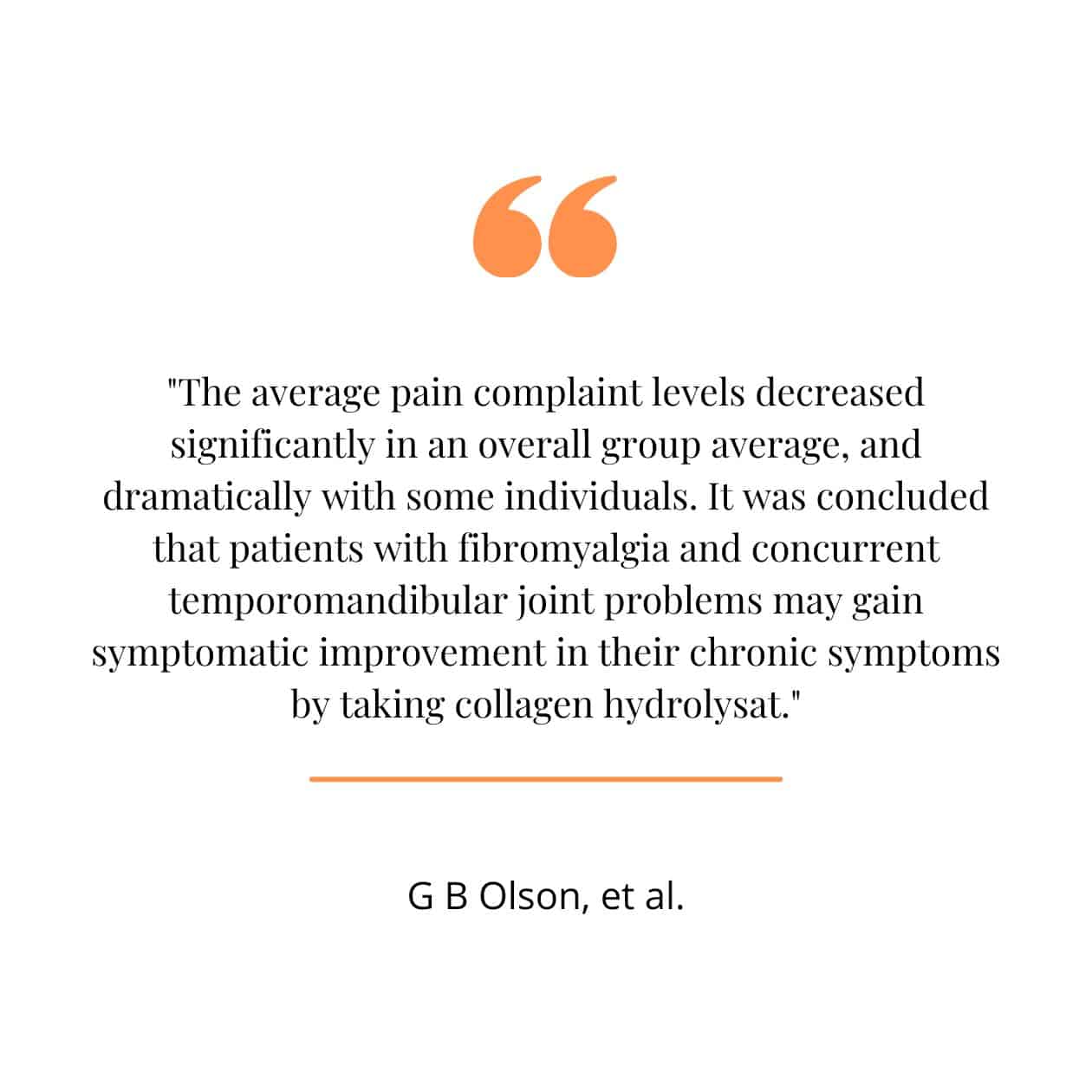Does collagen help with hair loss? This is a question that many individuals dealing with thinning hair often ask. Collagen, a critical protein in our bodies, has been linked to numerous health benefits including the potential to support healthy hair growth.
In this blog post, we look at how collagen contributes to hair health and its role in preventing hair loss. We’ll explore the science behind how taking collagen supplements can potentially boost your natural collagen production and increase hair growth.
We will also discuss different types of collagen like marine collagen and hydrolyzed collagen peptides that are best suited for supporting your locks. Finally, we’ll provide guidance on the optimal amount of daily collagen supplementation for promoting robust strands.
So if you’re wondering “Does collagen help with hair loss?”, stay tuned as we unravel this complex topic based on current research findings.
Does Collagen Help with Hair Loss?
If you’re losing hair, collagen might be your secret weapon. Research suggests it can boost hair growth and prevent further thinning.
Collagen, the protein that keeps our skin elastic, also supports healthy hair follicles. Taking collagen supplements can strengthen your strands from within, promoting healthy hair growth. Collagen is a key element for the good condition of our hair follicles and connective tissues, ensuring they remain intact and functional to promote healthy hair growth. It helps maintain their integrity and functionality, supporting healthy hair growth.
Consuming collagen can also help build keratin, the primary protein in our hair. This strengthens our strands and reduces breakage.
How Does Collagen Combat Hair Loss?
Hair loss often occurs due to damaged or weakened follicles. Collagen supplements enhance natural collagen production, repairing damaged follicles and stimulating new hair growth.
- Aiding Regrowth Through Enhanced Nutrient Supply: Hydrolyzed collagen peptides, the most bioavailable form, provide essential nutrients at the cellular level, aiding in hair regrowth.
- Fighting Oxidative Damage: Regular collagen intake can protect against oxidative stress, preserving hair color and reducing age-related decline.
The Role of Collagen in Strengthening Hair
Collagen serves up amino acids that are like superfoods for your hair. When you gobble up collagen supplements, your body breaks them down into amino acids, which then work their magic to produce keratin, the protein that gives your hair its strength and structure.
But wait, there’s more. Collagen also acts as a bodyguard for each precious strand of hair. It forms a protective shield around your follicles, shielding them from free radicals, UV rays, and other environmental villains. Say goodbye to breakage and thinning.
Nourishing the Scalp With Collagen
Collagen doesn’t stop at strengthening your strands. It’s also a scalp superhero. A healthy scalp is the secret to luscious locks, and collagen knows it. The amino acids derived from collagen synthesis boost blood circulation in your scalp, delivering nutrients to every follicle and whisking away waste products. Plus, they help your scalp produce sebum, the natural oil that keeps your scalp and hair moisturized. No more dryness-induced breakage.
Fighting Age-Related Hair Thinning
Collagen to the rescue again. As we age, our collagen production takes a nosedive, leaving us with weaker, thinner hair that loves to bail on us. But fear not. By adding collagen to your diet, you can give your hair a fighting chance. It helps maintain thicker, fuller locks even as the years go by. Age is just a number, after all.
What Types of Collagen are Best for Hair Loss?
Not all collagen supplements are the same, particularly when it comes to hair loss prevention and promotion of healthy hair growth. Some collagens are just better at promoting healthy hair growth and reducing hair loss.
The superstar in this category is hydrolyzed collagen. It’s the king of collagens—broken down into smaller molecules for easy absorption and utilization by your body. In fact, studies have shown that hydrolyzed collagen is absorbed at a higher rate than other forms of the protein. Talk about efficiency.
Why Hydrolyzed Collagen?
Hydrolyzed collagen is a hair follicle’s best friend. It delivers the necessary nutrients directly to the hair follicle, making them stronger and reducing breakage and thinning. It’s like giving your hair a power-up.
Hydrolyzed collagen also promotes skin hydration and elasticity, which indirectly benefits your scalp health. It’s a win-win for your hair and skin.
Type I & III Collagen: A Dynamic Duo
Now, let’s dive deeper into the collagen world. Type I and Type III collagens are the dynamic duo for your hair. Type I is the most abundant type found in our bodies, including our skin, nails, and yes, our precious hairs. Supplementing with Type I collagen gives your strands the extra building blocks they need to be stronger.
And then we have Type III collagen, always hanging out with Type I in the same tissues, including your lovely locks. It helps maintain the overall structural integrity of your hair, preventing those pesky premature breakages.
A Note About Quality
When choosing high-quality collagen products, it’s crucial to consider a few key factors to ensure the best results:
- Opt for hydrolyzed collagen
- Source matters: marine collagen is believed to have the highest bioavailability over bovine and porcine collagen
- Ensure it’s free from fillers, additives, and preservatives
- Third-party certification is an extra layer of quality assurance
Remember, quality makes a difference. Choose a high-quality collagen supplement from a reputable brand like Organixx. Don’t settle for harmful additives or fillers commonly found elsewhere. Your hair deserves the best.
What Other Benefits Does Collagen Have?
In addition to its potential benefits for hair loss and thicker hair, collagen is a powerhouse supplement with numerous other health advantages. This protein plays a crucial role in maintaining the structure and integrity of your skin, joints, bones, and muscles. Let’s delve into some of these remarkable benefits.
Improved Skin Health: Collagen: the secret to looking young forever? Well, maybe not forever, but studies show that collagen supplements can hydrate your skin and reduce wrinkles. So, say goodbye to dry skin and hello to a more youthful glow.
Promotes Joint Health: Calling all athletes and active folks. If joint pain is cramping your style, collagen might be your new best friend. Studies have indicated that consuming collagen supplements may help alleviate indications of osteoarthritis and decrease overall joint pain. Time to get back in the game.
Maintains Bone Health: Strong bones are the foundation of a healthy body, and collagen is here to keep them rock solid. Studies have shown that collagen supplements may inhibit bone breakdown and help maintain bone density. So, keep those fractures at bay and strut your stuff.
Muscle Mass Maintenance: Want to keep those muscles strong and in tip-top shape? Collagen has got your back. Research suggests that collagen supplementation can promote muscle protein synthesis and aid in muscle maintenance and growth. Time to flex those gains.
Digestive Aid & Energy Booster: Collagen: this abundant protein is not just a pretty face. It can also help improve digestion and boost your energy levels. By repairing the intestinal lining and promoting healthy stomach acid secretion, collagen ensures smoother food processing and better nutrient absorption. Say hello to a happier tummy and a more energized you.
How Much Collagen Should I Take for Hair Loss?
If you’re having issues with thinning hair and are thinking of trying collagen supplements, you might be wondering how much to take. Well, it’s not a one-size-fits-all answer, but here are some general guidelines to help you out.
The recommended dosage of collagen for hair loss is 10-15 grams per day. Split this amount into smaller doses throughout the day, preferably with meals or snacks. For example, if you decide on 15 grams of collagen daily, you could have 5 grams at breakfast, lunch, and dinner respectively.
But remember, everyone’s body reacts differently to supplements. What works for one person may not work as well for another. Keep an eye on your body’s reaction and modify the dosage depending on that.
Talking to Your Doctor
If you have any hesitations about taking collagen for hair loss, it’s always wise to consult your doctor. They can provide personalized advice based on your health and medical history. Your doctor may suggest starting with a lower dose and gradually increasing it based on your body’s response or advising against certain products due to potential interactions or health conditions.
Note:
- Dosage Adjustments: If you don’t see any improvement in your hair after a few weeks, consider adjusting the dose slightly under the guidance of a healthcare professional. Be mindful that having too much collagen can cause problems like bloating and abdominal discomfort, so be careful when upping your dosage.
- Cautions and Side Effects: While generally safe, some people may experience minor side effects like digestive upset or feeling overly full when consuming large amounts of collagen.
- Allergic Reactions: If you have allergies to fish, shellfish, beef, or chicken, make sure to choose a collagen supplement that aligns with your dietary restrictions to avoid potential allergic reactions.
So, whether you’re trying to combat thinning locks or boost overall wellness, adding the right amount of quality collagen from trusted sources like Organixx could be a beneficial step toward a healthier lifestyle. Just remember, always consult your healthcare provider before starting any new supplementation routine to ensure safety and effectiveness.
The Final Say:
Collagen: the secret to luscious locks! This magical protein not only promotes hair growth but also strengthens those precious hair follicles and keeps your scalp healthy. Type I and type III collagen are the hair heroes you need.
How much collagen should you take for hair loss? Well, it depends on your unique needs, but a daily dose of 2.5-10 grams is generally recommended. Just remember to consult a healthcare pro before diving into the collagen craze.
Collagen: A Natural Solution for Joint Pain?“The results of this study have implications for the use of collagen hydrolysate to support joint health and possibly reduce the risk of joint deterioration in a high-risk group.” – 24-Week study on the use of collagen hydrolysate as a dietary supplement in athletes with activity-related joint pain
Americans are in pain, and a large percentage of this pain comes from weakness and deterioration in the joints. According to the National Health Interview Survey conducted by the Centers for Disease Control (CDC) back in 2006, 30% of all adults in the country experienced some form of joint discomfort over the previous 30 days [1]. Knee pain, or osteoarthritis, was the culprit for 18% of the respondents, followed by shoulder pain (9%) and hip pain (7%).
If you or a loved one fall into this category, you need to know there are many things you can do to alleviate the pain and discomfort in your joints – without having to resort to pain meds (which only mask the problem). One huge step in the right direction is to up your collagen levels, as collagen can work to lubricate and fortify your joints on all levels.
Studies Show: Collagen Supplementation Helps Joint Pain in Athletes

Image source: Dietary supplements for treating osteoarthritis: a systematic review and meta-analysis
 If you love your morning jog, this is especially important information. Did you know that the condition called “Runner’s Knee,” otherwise known as patellofemoral pain syndrome, affects one in four physically active people? What’s more, if left unchecked, patellofemoral pain syndrome can lead to patellofemoral osteoarthritis–and excruciating pain.
If you love your morning jog, this is especially important information. Did you know that the condition called “Runner’s Knee,” otherwise known as patellofemoral pain syndrome, affects one in four physically active people? What’s more, if left unchecked, patellofemoral pain syndrome can lead to patellofemoral osteoarthritis–and excruciating pain.
Of course, this doesn’t mean you have to stop exercising by any means! Science is discovering what causes Runner’s Knee in the first place [2] and what you can do about it.
Recommended go-to strategies include:
- Changes in posture
- Losing weight
- Doing targeted stretching routines
- Eating an anti-inflammatory diet
Plus, as mentioned earlier, upping the collagen level in the body.
The link between collagen levels and knee pain alleviation in athletes has been verified by science, and it just makes sense. Most athletes work their bodies hard. Especially if you are a “weekend warrior,” it might not take much to overdo it and end up injured. Up to 90% of all of our tendons, cartilages, and ligaments are made from collagen, especially Type II, which is often called “cartilage collagen.”
At the same time, as far back as the 1970s, studies found a correlation between aging and lower collagen production as well as greater malfunctions in the way collagen molecules work in the body (a process known as “crosslinking” [3]). Collagen deficiencies as we age show up first in the skin [4], but it also affects joints, cartilage, bones, and even internal organs.
If you are a physically-active person over the age of 30, you have more of a reason to pay attention to your collagen levels. But even if you are still part of the “under 30” crowd, ignoring that knee pain after a run could lead to cartilage breakage and disability in the long run for you, too.
The evidence is out there as to how upping your own collagen levels can help.
One of the most cited studies to date is from researchers at Penn State University in 2008. In this clinical trial, 147 relatively healthy male and female collegiate athletes with no signs of joint disease, but who occasionally experienced joint pain, were divided into two groups.
The first group received a collagen hydrolysate supplement for 24 weeks. The other received a placebo. Collagen hydrolysate is a type of supplement where collagen molecules are broken down into peptides (small groupings of amino acids) for better digestion and absorption.

The results of the study indicated that the individuals who consumed the collagen supplement had reduced pain and inflammation and increased mobility compared to those who did not.
According to the study investigators, “The results of this study have implications for the use of collagen hydrolysate to support joint health and possibly reduce the risk of joint deterioration in a high-risk group.”
Drinking bone broth on a regular basis is another go-to strategy for soothing Runner’s Knee. Making a broth from organic, grass-fed beef or chicken bones ensures you are getting a lot of collagen in your diet (in the form of gelatin, which is what collagen morphs into when it is cooked) as well as many other nutrients. This includes glucosamine, chondroitin, hyaluronic acid, and essential minerals that all work in synergy with collagen for vitality and health of the whole body.
Can Collagen Help With Osteoarthritis?

Image source: Effect of collagen supplementation on osteoarthritis symptoms: a meta-analysis of randomized placebo-controlled trials
An estimated 27 million Americans have osteoarthritis (OA) [5]; that’s about eight percent of the U.S. population! Osteoarthritis is defined as “inflammation of the joints” and is considered a degenerative disease that causes the breakdown of cartilage in between the joints.
Osteoarthritis can affect any joint in the body, but the most common is osteoarthritis of the knee. If you are among those who suffer from any form of osteoarthritis, then you know how devastatingly painful it can be!
In the most severe cases, joint replacement surgery is the best option for osteoarthritis. This may be avoided, however, if action is taken early. Again, eating an anti-inflammatory diet can help, according to the Arthritis Foundation [6]. So can stretching, losing weight to put less stress on the joints, and reducing stress [7].
According to the latest studies, targeted collagen supplementation can also help to ease the swelling, pain, and stiffness associated with OA. A large-scale meta-analysis sponsored by the University of Sydney in Australia concluded that collagen supplementation was more successful than any other supplements they studied at reducing pain in osteoarthritis patients [8].
Another study published in Nutrition Journal 2016 [9] found that after 180 days, those who took a specific collagen Type II supplement experienced significantly better relief from pain, stiffness, and function than the placebo group and a slightly higher level of comfort than those who took a chondroitin supplement.
These studies are just the latest in a long list of investigations that have hinted to the power of natural substances to help with the pain and discomfort associated with this condition. An investigation done by Case Western Reserve University School of Medicine over 25 years ago suggested that nutraceuticals such as glucosamine, chondroitin sulfate, and collagen hydrolysate may have efficacy for pain equal to that of NSAIDs (nonsteroidal anti-inflammatory agents) – minus the harmful side effects of course [10].
What About Collagen and Rheumatoid Arthritis?

Image source: Treatment of rheumatoid arthritis with oral type II collagen
Rheumatoid arthritis (RA) is caused by an over-activation of the immune system, where inflammation occurs in joint cartilage. Conventional medical wisdom argues that there is a wide difference between osteoarthritis and rheumatoid arthritis. Recent research, however, suggests that RA and OA have a lot more in common than originally thought.
The most important thing that both of these conditions have (and this is shared with most chronic diseases out there in general) is inflammation [11]. For RA and OA both, inflammation occurs in the joints and this leads to the breakdown of cartilage. Collagen has been found time and time again to help reduce inflammation in both RA and OA conditions.
In fact, back in 2000 Nebraska Medical Center researchers found that plain old chicken soup reduced inflammation. How? Something in the soup seemed to detract from certain pro-inflammatory immune system cells from sites of existing inflammation.
At first, the investigators thought that this was caused by the vegetables in the soup, which was a reasonable assumption. As it turned out, however, it was amino-acid-rich chicken broth itself that had such an anti-inflammatory effect [12].
Further research has added validity to the possibility that collagen supplementation may be beneficial for people with both OA and RA. A 2009 double-blind clinical trial involving 500 individuals was published in the journal Arthritis Research and Therapy [13]. It found that an undenatured collagen Type II product improved participants’ stiffness (especially in the morning), pain, joint tenderness, and swelling.
How to Use Collagen to Address Pain Issues

Image Source: The effects of collagen hydrolysat on symptoms of chronic fibromyalgia and temporomandibular joint pain
With 23% percent of all American adults having some form of arthritis [14] and even more suffering from undiagnosed joint pain such as Runner’s Knee, coming up with solutions is a necessity. Even the National Institutes of Health (NIH) recognizes that conventional ways of addressing pain aren’t working. In a 2015 news release [15] announcing their latest pain findings, the NIH noted:

“Pain is one of the leading reasons Americans turn to complementary health approaches such as yoga, massage, and meditation—which may help manage pain and other symptoms that are not consistently addressed by prescription drugs and other conventional treatments.”
The good news is there are actions you can take right now to increase collagen production, no matter what your age.
As always, it is vital that you consult with your trusted health practitioner before beginning any kind of supplementation program. That being said, in study after study, high-quality collagen supplementation has proven effective in helping to reduce both inflammation and pain levels in those who suffer from joint pain.
No matter what, remember that you don’t have to live in pain caused by RA and OA. There are natural solutions that can work.




